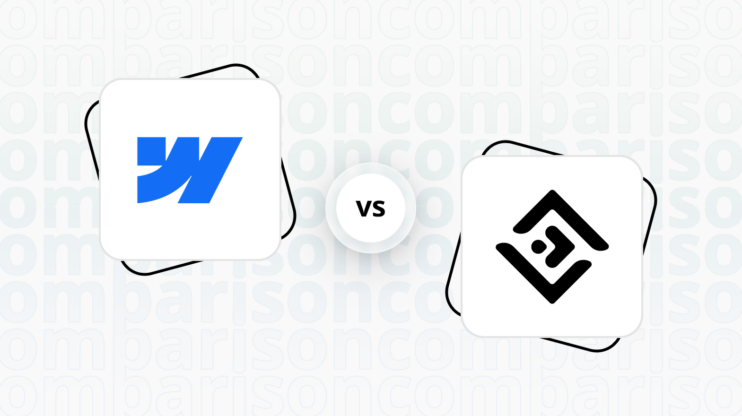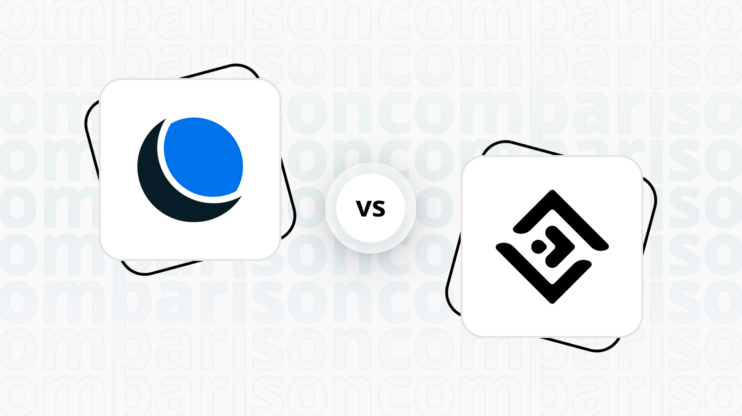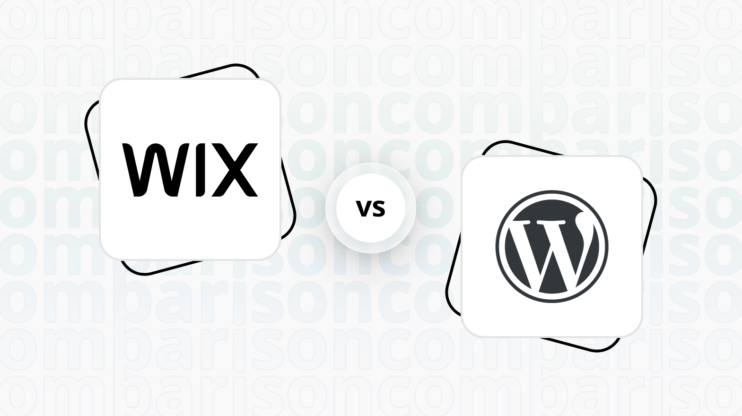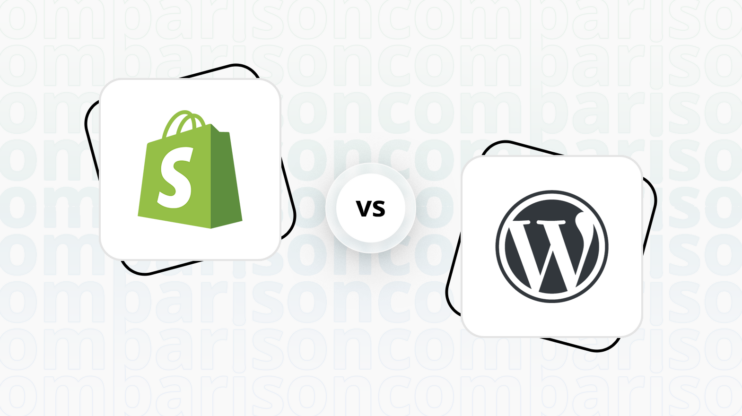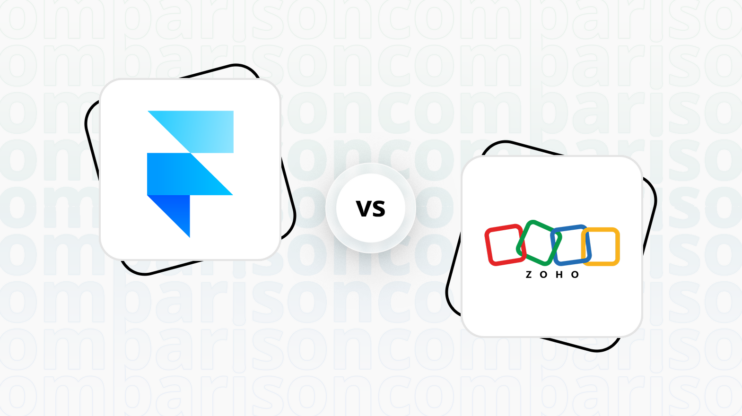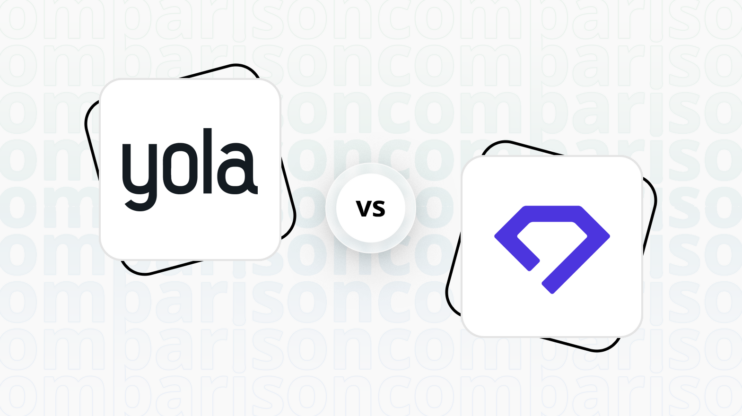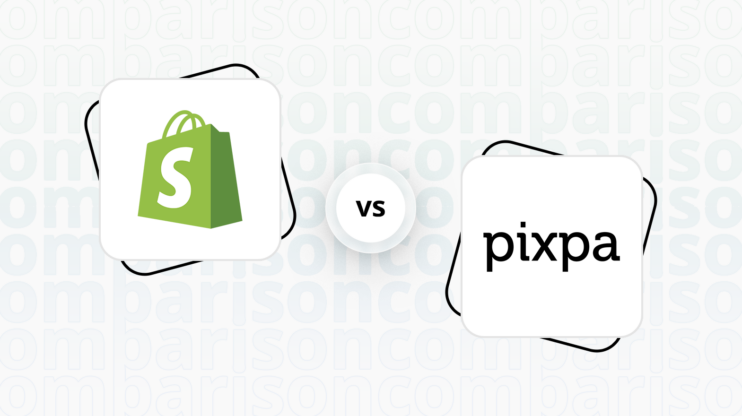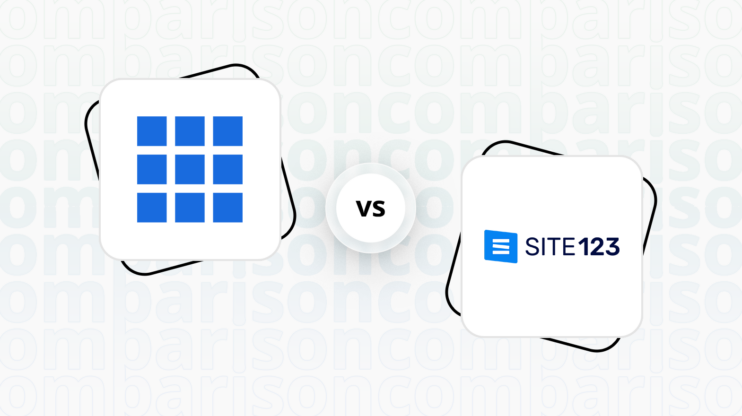Final verdict
Webflow and Dreamhost offer distinct advantages, catering to different user needs and preferences.
-
Webflow (Overall Grade: 7.9/10)
excels in providing a powerful platform for professional designers and users who prioritize design flexibility and customization. With its advanced design tools, comprehensive CMS, and high-quality hosting, Webflow is ideal for creating custom, responsive websites. Its higher learning curve is balanced by extensive learning resources, making it a solid choice for users willing to invest time in mastering its capabilities. -
Dreamhost (Overall Grade: 6.7/10)
, while scoring lower overall, shines in ease of use and WordPress integration, making it a great option for users looking for a straightforward website building experience or those planning to leverage WordPress’s extensive plugin ecosystem. Dreamhost’s focus on reliability and customer support further enhances its appeal to both beginners and experienced users seeking a robust web hosting solution.

|

|
|
|---|---|---|
|
Design functionalities & templates |
8.6 |
7.6 |
|
Ease of use |
7.5 |
8.2 |
|
Ecommerce |
8.5 |
7.4 |
|
Website Editors |
9.0 |
7.3 |
|
Product testing options |
6.3 |
2.7 |
|
Price |
8.0 |
7.8 |
|
Hosting quality |
8.9 |
7.2 |
|
Website speed optimization |
8.1 |
3.5 |
|
Plugins and integrations |
5.5 |
8.8 |
|
Marketing features |
7.8 |
8.0 |
|
Customer support |
8.3 |
7.5 |
|
Security |
7.8 |
8.2 |
|
AI capabilities |
8.3 |
1.2 |
|
User Management |
8.3 |
8.8 |
| Overall |
7.9 |
6.7 |
Best for ecommerce
 8.5
8.5
 7.4
7.4
Verdict
: Webflow shines for users seeking deep customization and comprehensive ecommerce features, while Dreamhost is a strong contender for those prioritizing versatility and ease of integration with popular ecommerce tools.
-
Webflow
: Offers a robust platform for building sophisticated online stores, with a focus on design flexibility and advanced ecommerce functionalities. It’s particularly suited for designers and users who want detailed control over their site’s appearance and ecommerce features. -
Dreamhost
: Provides a solid foundation for ecommerce through its integration with WooCommerce, making it ideal for WordPress users. It’s a great choice for those looking for a blend of simplicity, reliability, and the ability to scale their ecommerce operations.
Best for informational & business websites
 8.6
8.6
 7.5
7.5
Verdict
: Webflow is the superior choice for informational and business websites, offering unmatched design flexibility, powerful hosting, and optimal website speed. Dreamhost, while user-friendly and rich in plugins, doesn’t quite match up in terms of design capabilities and performance.
-
Webflow
: Webflow excels in creating custom, responsive websites with its powerful design tools and flexible CMS. It’s ideal for businesses that require a high degree of customization and control over their site’s design and functionality. The platform’s robust hosting infrastructure and focus on speed optimization further enhance its suitability for professional websites. -
Dreamhost
: Dreamhost is a solid option for those who prioritize ease of use and access to a wide range of WordPress plugins. Its website builder, Remixer, and seamless WordPress integration make it a good choice for users looking for a straightforward way to create and manage their sites. However, it may not offer the same level of design sophistication and performance as Webflow.
Detailed comparison
Design functionalities & templates
Design FunctionalitiesRepresents how well each platform allows for creative design and customization of websites.Score Components:
- Template Variety (30%): Range and quality of design templates.
- Customization (30%): Flexibility and options for design alterations.
- User Interface (20%): Ease and intuitiveness of the design process.
- Responsiveness (10%): Adaptability to different devices and screen sizes.
- Innovation (10%): Unique design features and tools.
 8.6
8.6
 7.6
7.6
🏆
Winner: Webflow.
If you’re looking for a platform that offers more creative control and a wide array of design features, Webflow is the preferred choice.
Webflow delivers a robust design experience with a diverse range of template and customization options. Boasting over 1000 pre-built templates covering various industries and website types, including free and premium options, Webflow ensures a constantly evolving library for users. Templates are categorized for easy browsing, considering industry, website type, style, and features. The design customization features include a visual drag-and-drop editor for real-time adjustments, fine-grained control over every aspect of the design, and the ability to inject custom code for advanced users seeking additional personalization and unique functionalities.
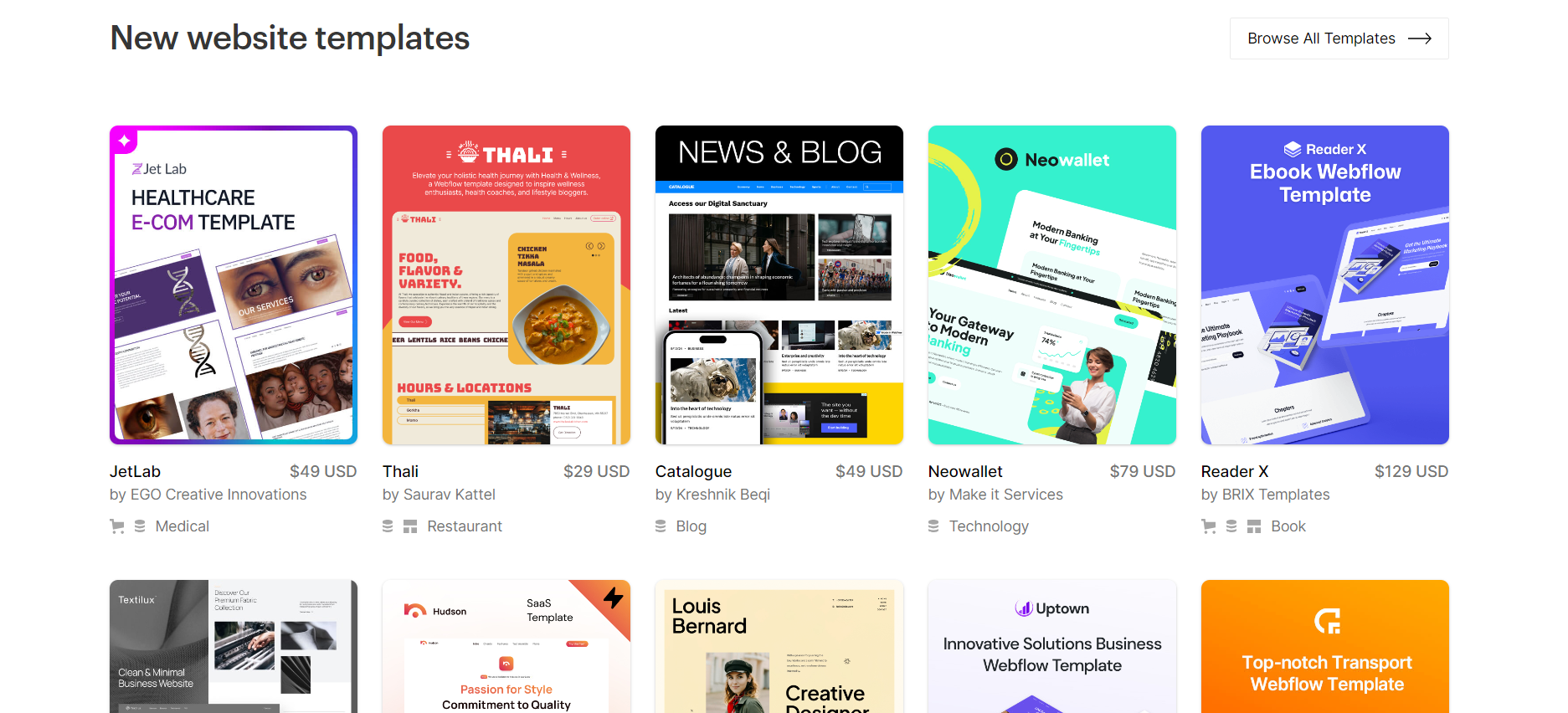
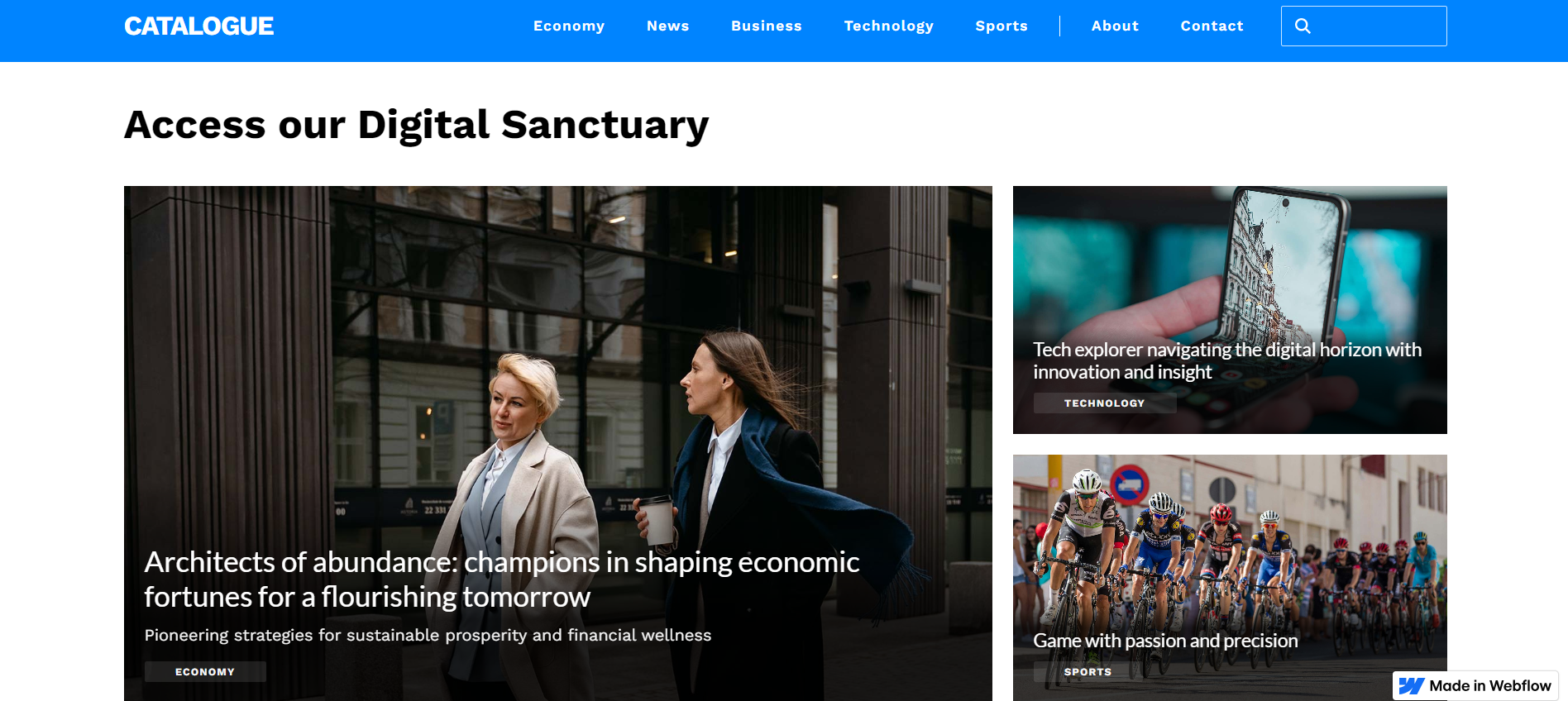
Compared to Webflow, Dreamhost’s website builder, offers a user-friendly interface that allows for a high degree of customization flexibility. Users can edit various elements including text, images, backgrounds, and layout structures to match their preferences. The platform also provides a wide range of themes and templates that can be further customized to ensure the final website aligns with the user’s brand identity. Additionally, Dreamhost supports integration with other tools and services, enhancing the functionality and adaptability of websites created with its builder.
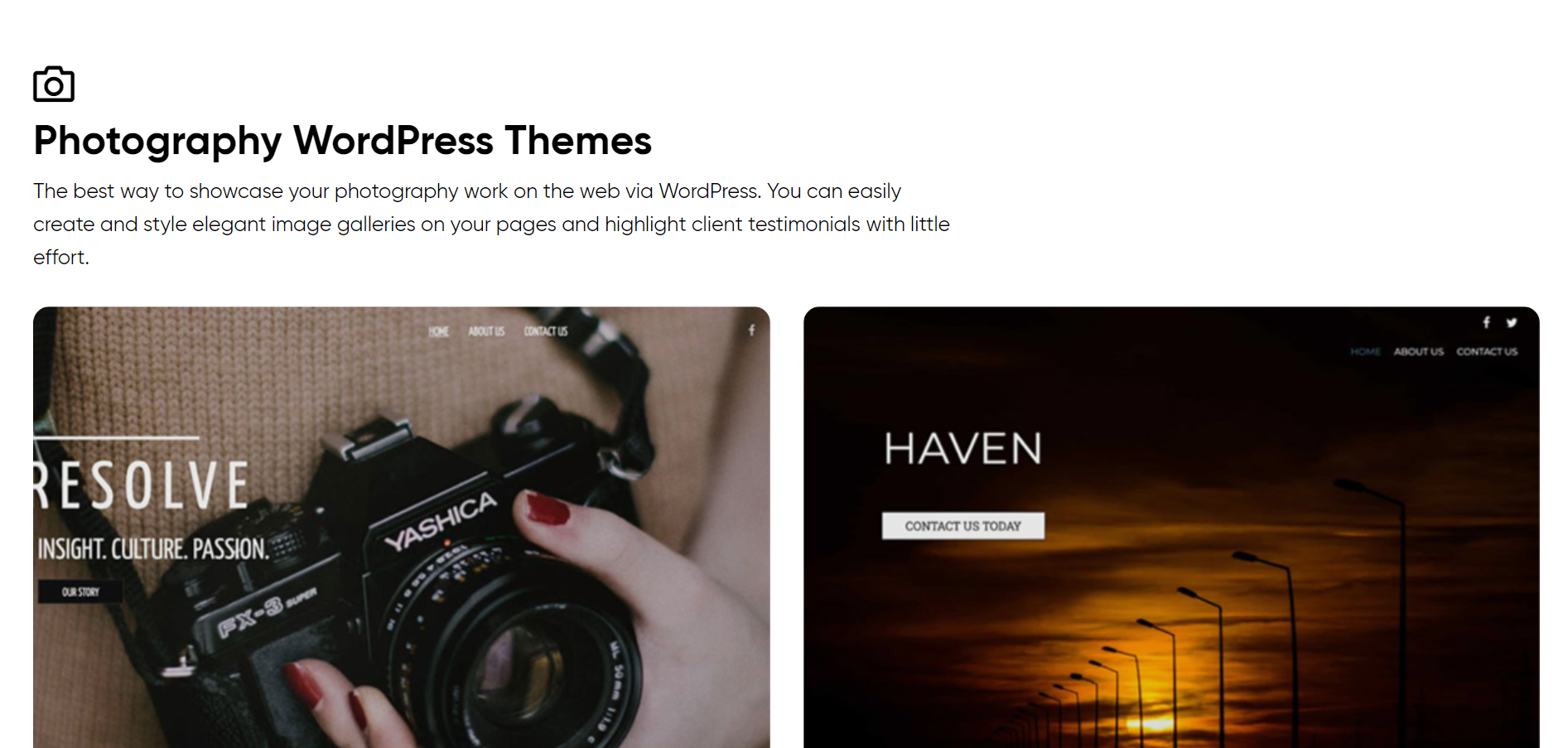
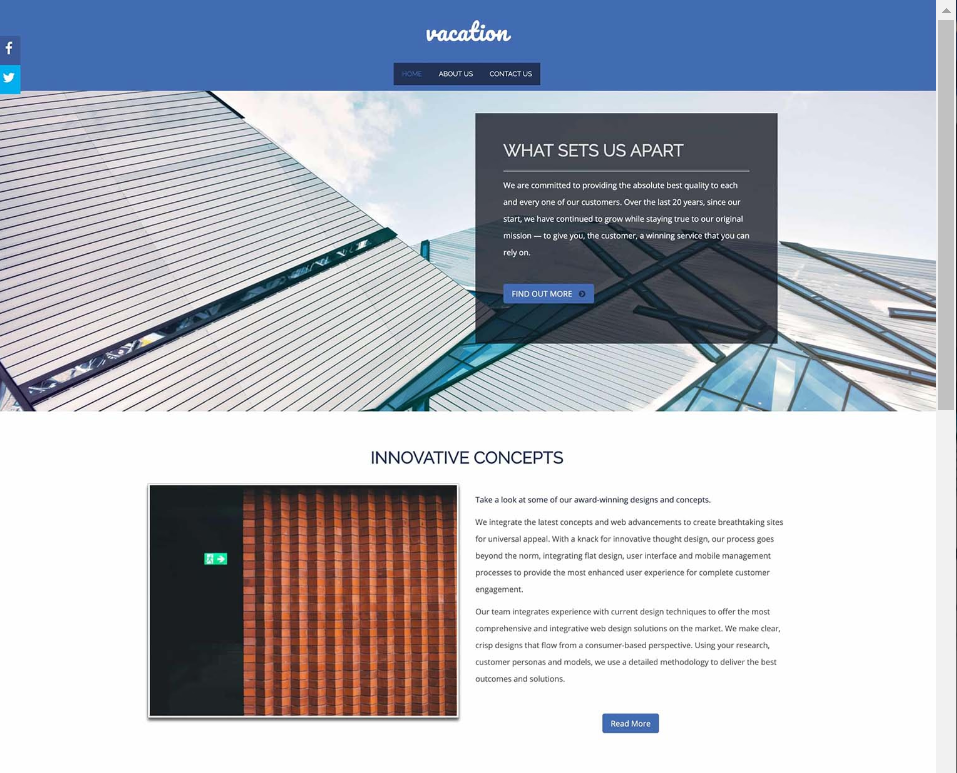
Get a head start on website creation with AI
Create a custom website tailored to your business needs 10X faster with 10Web AI Website Builder!
Ease of use
Ease of useReflects the platform’s overall user-friendliness.Score
Components:
- Learning curve (40%): Quickness and ease of getting started.
- Interface design (30%): Simplicity and intuitiveness of layout.
- User guidance (20%): Quality of tutorials and support.
- Flexibility (10%): Adaptability to various user skills.
 7.5
7.5
 8.2
8.2
🏆 Winner: Dreamhost
. With a score of 8.2, Dreamhost’s website builder is designed with simplicity in mind, making it highly accessible for users without prior web development experience. Webflow, scoring 7.5, offers a visually intuitive interface but has a steeper learning curve, especially for beginners. If ease of use is a priority, Dreamhost is the clear winner in this category.
Learning Resources
🏆 Winner: Webflow
. Both platforms offer solid learning resources, but Webflow goes a step further with its comprehensive set of learning resources, including Webflow University and a thriving community of users across multiple platforms.
For ecommerce
EcommerceMeasures the platform’s effectiveness in supporting online business activities.Score Components:
- Ecommerce themes and templates (20%): Variety and design of templates.
- Product management (25%): Ease of managing and organizing products.
- Payment options (25%): Variety and convenience of payment methods.
- Ecommerce features (20%): Features for managing an ecommerce store.
- Integration (10%): Compatibility with external e-commerce tools and services.
 8.5
8.5
 7.4
7.4
Webflow and Dreamhost both offer robust ecommerce capabilities, but they cater to different needs and preferences. Webflow stands out with its comprehensive ecommerce features, including easy store creation without coding, extensive customization options, product management with variations, inventory tracking, and integration with major payment gateways. On the other hand, Dreamhost offers a versatile platform for building ecommerce sites, with over 200 themes, drag-and-drop customization, and WooCommerce-ready features.

|

|
|
|---|---|---|
|
Ecommerce themes and templates |
7.5 |
7.0 |
|
Product page customization |
8.3 |
7.8 |
|
Payment processing and commissions |
7.8 |
7.5 |
|
POS capabilities |
6.5 |
7.0 |
|
Payment gateways |
8.0 |
7.7 |
|
Product numbers |
7.0 |
6.5 |
|
Additional ecommerce features |
7.9 |
7.2 |
Webflow ecommerce features:
- Checkout and Payment Processing with Stripe, PayPal, etc.
- Marketing and Promotions
- Tax and Shipping calculations
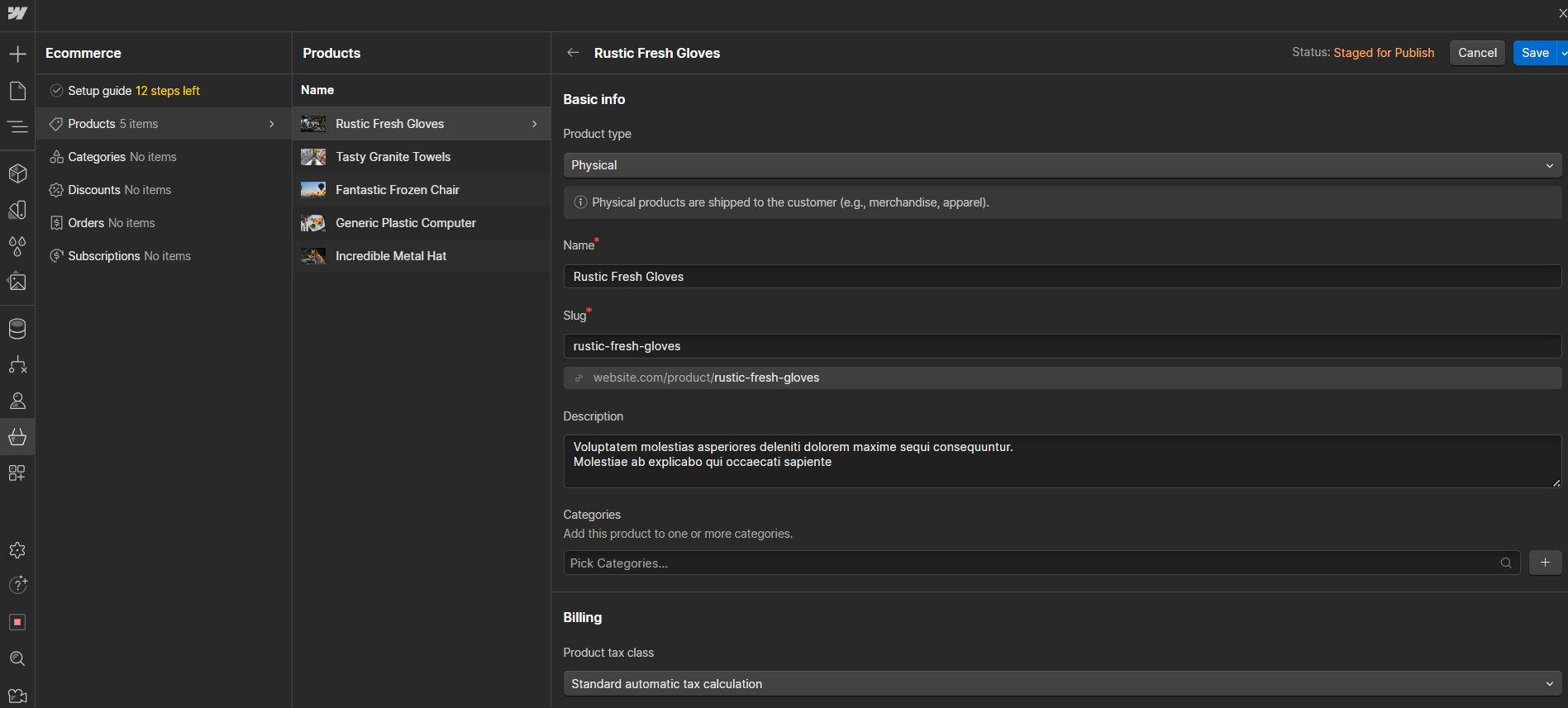
Dreamhost ecommerce features:
- WooCommerce-Ready Themes
- Magento integration
- Shopify integration
Ecommerce themes & templates
Webflow offers a diverse range of ecommerce themes and templates designed to cater to various types of online stores, from fashion and technology to artisan crafts and children’s products. Each template comes equipped with built-in ecommerce functionality, allowing you to easily add products and manage your store without the need for coding. DreamHost facilitates eCommerce site creation mainly through WooCommerce, offering a powerful, open-source platform with plans designed to cater to varying levels of eCommerce activity. Additionally, DreamHost’s WP Website Builder, equipped with BoldGrid, provides a range of mobile-friendly themes for easy site customization without coding knowledge.
Product page customization
Webflow offers extensive customization options for eCommerce product pages, allowing users to design and personalize their pages without coding. It provides tutorials for creating product pages from scratch, offers responsive templates for various devices, and allows users to add custom code and dynamic content using Webflow’s CMS for maximum customization flexibility. Through the integration of WooCommerce, DreamHost’s website builder offers a range of customization possibilities for e-commerce product pages to enhance the shopping experience. These possibilities include layout adjustments like modifying the single product page layout and adding custom tabs, introducing custom fields and sections for additional product information and FAQs, implementing dynamic content like personalized recommendations, and enabling product variations with swatches and custom product builders.
Payment processing
When it comes to payment processing, Webflow provides a flexible and secure platform for payment processing and ecommerce through integrations with leading payment gateways like Stripe and PayPal. This allows users to accept a wide range of payments, including credit card transactions directly from their websites. DreamHost supports a variety of popular payment gateways like PayPal, Stripe, Authorize.Net, Amazon Pay, and Square, each with its own fee structure but no additional charges from DreamHost. These gateways offer features like POS capabilities, fraud detection, and international currency support, making DreamHost a versatile choice for website builders focusing on WordPress integration.
Website Editors
Website EditorsEvaluates the platforms’ website building and editing capabilities.Score Components:
- Customization tools (40%): Range and power of editing features.
- Editor usability (30%): User experience within the editor.
- Design flexibility (20%): Freedom in layout and design changes.
- Update and maintenance ease (10%): Simplicity of updating and maintaining the site.
 9.0
9.0
 7.3
7.3
🏆
Winner: Webflow
. With a score of 9.0, Webflow’s editor is praised for its intuitive visual interface that simplifies the process of designing and editing responsive websites without requiring deep technical knowledge. It offers a perfect blend of ease of use for beginners and the flexibility for more advanced users, enabling significant cost savings by allowing users to customize and manage their sites without hiring professionals.
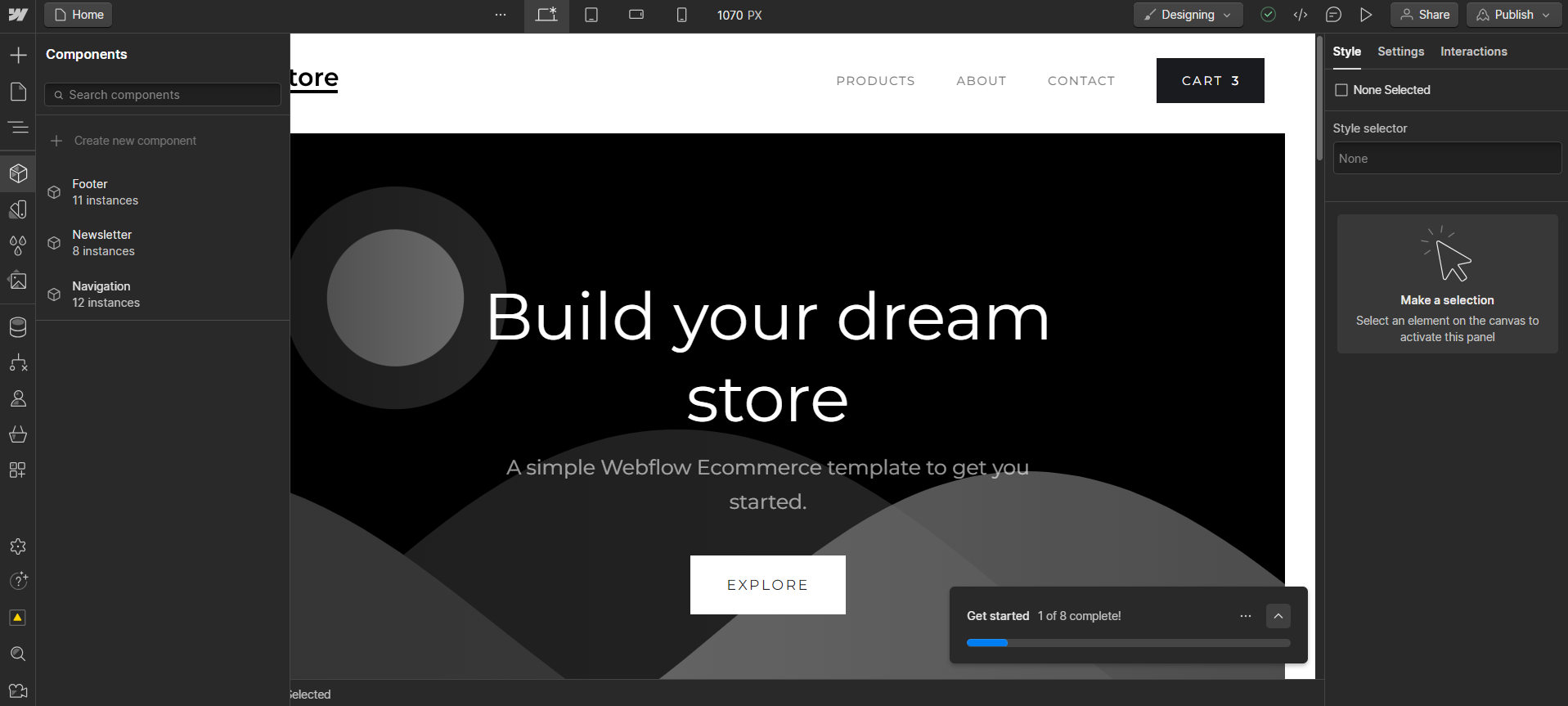
Dreamhost’s editor, scoring 7.3, offers a user-friendly interface for creating and customizing WordPress websites, employing a drag-and-drop editor that eliminates the need for coding skills. However, beginners without any prior experience might face a learning curve initially, as with most website builders.
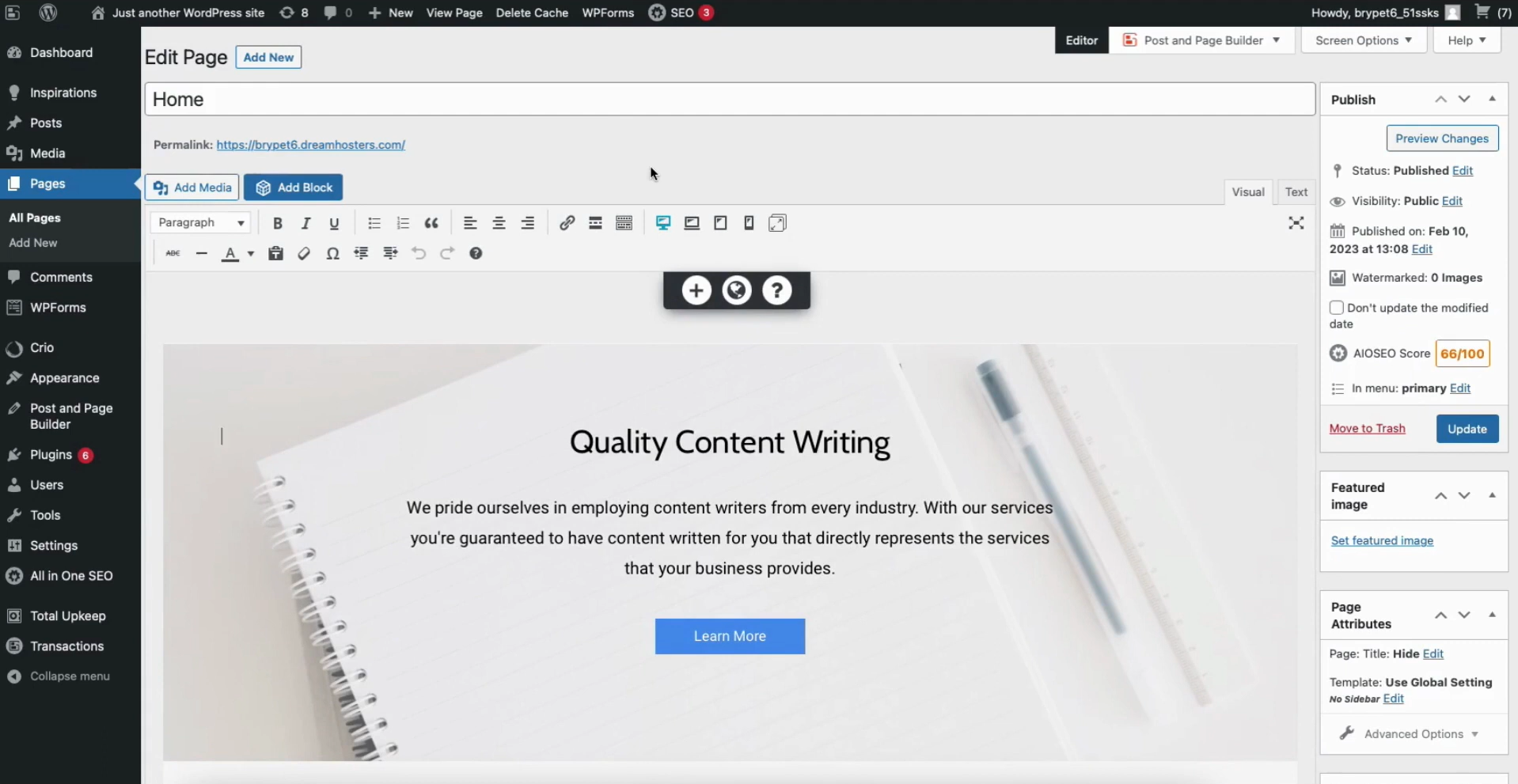
Mobile editor/app
 7.0
7.0
 5.5
5.5
🏆
Winner: Webflow
. Both Webflow and Dreamhost do not have official mobile editor apps. However, Webflow has a third-party app called EditFlow, created by a community member for Webflow users, which is currently only available for iOS. On the other hand, Dreamhost does not have a dedicated mobile editor app, but you can modify your website using a mobile browser, though this comes with certain restrictions.
In summary, Webflow receives a higher rating due to the availability of a third-party app, while Dreamhost’s mobile editing capabilities are limited to browser-based modifications.
Product testing options
Product Testing OptionsAssesses the options for trying out platform features before commitment.Score Components:
- Trial quality (40%): Extent and usefulness of the trial or free version.
- Feature accessibility (30%): How many features are available to test.
- Trial duration (20%): Length of the trial period.
- Ease of transition (10%): Smoothness of moving from trial to paid plans.
 6.3
6.3
 2.7
2.7
Overall Result
:
Webflow wins
. Webflow scores 6.3 in product testing options, significantly higher than Dreamhost’s 2.7. Webflow offers a free version where users can test some basic features. On the other hand, Dreamhost does not provide a free or trial version, but it allows testing of premium features during the 30-day refundable period.

|

|
|
|---|---|---|
|
Free Plan |
Yes |
No |
|
Trial Duration |
No | No |
|
Testing Premium Features |
Basic features with free plan |
During the 30-day refundable period |
Price
PriceLooks at the cost-effectiveness and value for money of each platform.Score Components:
- Plan value (40%): What each pricing tier offers.
- Transparency and clarity (30%): Clearness of pricing structures.
- Flexibility of plans (20%): Range of options to suit different budgets.
- Hidden costs (10%): Additional expenses not included in the plan.
 8.0
8.0
 7.8
7.8
Webflow and Dreamhost have similar pricing scores, but Webflow offers a wider range of plans, including a free option and custom pricing for enterprise needs. Dreamhost, on the other hand, offers significant discounts on annual billing.

|

|
|
|---|---|---|
|
Free |
Starter (Free): Limited features for new sites, including 2 static pages and 50 form submissions lifetime. |
No offering at this amount. |
|
$0-$10 |
No offering at this amount. |
Shared Starter ($7.99/month): Shared Hosting with unmetered bandwidth but low SSD storage, Free SSL certificate, automated daily backups. This plan allows to manage only 1 website and there is no limitation of number of pages offered. Value for price: 6.5 |
|
$10-$20 |
Basic ($18/month): Suitable for simple sites with a custom domain, including basic SEO controls and 500 monthly form submissions. And 100 pages. Value for price: 6.5 |
Shared Unlimited ($13.99/month): Shared Hosting with unlimited websites, unmetered bandwidth, but low SSD storage, pre-installed Free SSL certificate, automated daily backups. Value for price: 7.5 |
|
$20-$30 |
CMS ($29/month): For content-driven sites with 2,000 CMS items, 1,000 monthly form submissions, and full API access. And 150 website pages. Value for price: 7.5 |
DreamPress ($23.99/month): Isolated Cloud hosting with unmetered bandwidth, 30GB SSD storage, staging website, fast NGINX pre-installed Free SSL certificate, Free WordPress migrations, automated daily backups and on-demand 1-click restore, specialized WordPress support. This plan allows to manage only 1 website and there is no limitation of number of pages offered. Value for price: 8.0 |
|
$30-$45 |
Standard ($42/month): For new businesses with up to 500 ecommerce items, includes basic ecommerce features, and 2% transaction fee Value for price: 8.5 |
DreamPress Plus ($34.99/month): Isolated Cloud hosting with unmetered bandwidth, 60GB SSD storage, staging website, unlimited CDN, fast NGINX pre-installed Free SSL certificate, Free WordPress migrations, automated daily backups and on-demand 1-click restore, specialized WordPress support, 3-phone support callbacks. This plan allows to manage only 1 website and there is no limitation of number of pages offered. Value for price: 8.5 |
|
$45-$50 |
Business ($49/month): High traffic capacity, advanced features like site search, and up to 10 content editors. Value for price: 8.0 |
No offering at this amount. |
|
$80-$90 |
Plus ($84/month): Higher volume businesses with 0% transaction fees, up to 5,000 ecommerce items, and advanced features. Value for price: 9.0 |
DreamPress Pro ($89.99/month): Isolated Cloud hosting with unmetered bandwidth, 120GB SSD storage, staging website, unlimited CDN, fast NGINX pre-installed Free SSL certificate, Free WordPress migrations, automated daily backups and on-demand 1-click restore, specialized WordPress support, 5-phone support callbacks and priority support. This plan allows to manage only 1 website and there is no limitation of number of pages offered. Value for price: 9.0 |
|
$200+ |
Advanced ($235/month): Scalable solution for large online stores with up to 15,000 ecommerce items and the highest caps and 0% transaction fees. Value for price: 9.5 |
No offering at this amount. |
location. As a result in rare cases the prices displayed here can differ from the ones you see on their
websites.
Hosting quality
Hosting
qualityExamines the reliability and performance of the hosting solutions.Score Components:
- Uptime (40%): Consistency and reliability of website availability.
- Speed (30%): Loading times and performance.
- Bandwidth and storage (20%): Sufficiency of resources provided.
- Data centers (10%): Quality and distribution of hosting infrastructure.
 8.9
8.9
 7.2
7.2
Winner: Webflow
. Webflow offers managed hosting with a 99.99% uptime, and it leverages a globally distributed network of data centers from Amazon Web Services (AWS) and Fastly. Dreamhost, on the other hand, offers shared and cloud hosting with a 99.93% uptime and has two data centers in the US. While Dreamhost offers a 100% uptime guarantee, Webflow’s superior uptime and globally distributed network of data centers give it the edge in this comparison.

|

|
|
|---|---|---|
|
Do they offer hosting? |
Yes, included in all paid plans |
Yes, included in all paid plans |
|
Data Centers: |
Webflow doesn’t actually have its own data centers. Instead, it relies on a globally distributed network of data centers from Amazon Web Services (AWS) and Fastly |
2 data centers in US: Ashburn, Virginia and Hillsboro, Oregon |
|
Type of hosting: |
Managed Hosting |
Shared Hosting, Cloud Hosting |
|
Uptime: |
99.99% |
99.93% |
|
Uptime Guarantee: |
Only Enterprise plan, 99.99% |
Yes, 100% |
Website Speed Optimization
Website Speed OptimizationEvaluates optimization of website loading timesScore Components:
- PageSpeed Score (30%): Google’s score indicating performance optimization.
- Loading Time (30%): The average time until a website is fully interactive.
- Mobile Optimization (15%): Optimization effectiveness for mobile devices.
- Resource Optimization (15%): Optimizing images, scripts, and other heavy resources.
- CDN Usage (10%): Use of CDN to enhance speed across geolocations.
 8.1
8.1
 3.5
3.5
🏆 Winner: Webflow
Both Webflow and Dreamhost have strategies for speed optimization, but Webflow’s comprehensive approach and transparency about their Core Web Vital improvements give them the edge.

|

|
|
|---|---|---|
|
Focus |
Custom Cache Settings, Custom Element Lazy Loading, Automatic Minification, Responsive templates, CDN |
Built-in Caching on higher plans, Code minification, Image optimization |
|
Performance Tools |
Google Lighthouse, PageSpeed Insights |
Google PageSpeed Insights Integration |
|
Key Strategies |
Custom Cache Settings, Custom Element Lazy Loading, Automatic Minification, Responsive templates, CDN |
Built-in Caching on higher plans, Code minification, Image optimization |
|
Load Times |
Below 2 seconds average |
1.75-3 seconds average |
|
Page Speed Scores Range |
77.2/100 |
No data available |
|
Core Web Vitals Improvement |
Improving components’ usability, and emphasis on LCP, FID and CLS |
No information disclosed |
Webflow’s approach to speed optimization includes custom cache settings, custom element lazy loading, automatic minification, responsive templates, and a content delivery network (CDN). This comprehensive approach results in an average load time of below 2 seconds and a PageSpeed score of 77.2/100. Webflow also focuses on improving components’ usability and places emphasis on Largest Contentful Paint (LCP), First Input Delay (FID), and Cumulative Layout Shift (CLS) for Core Web Vital improvements.
On the other hand, Dreamhost’s strategies for speed optimization include built-in caching on higher plans, code minification, and image optimization. However, they do not disclose any information on their Core Web Vitals improvements. Their average load time ranges from 1.75 to 3 seconds, but no data is available for their PageSpeed score range.
Get a head start on website creation with AI
Create a custom website tailored to your business needs 10X faster with 10Web AI Website Builder!
Plugins and integrations
Plugins and integrationsMeasures the range and effectiveness of additional plugins and integrations.Score Components:
- Variety of options (40%): Range of available add-ons.
- Integration smoothness (30%): Ease of integrating plugins into the site.
- Quality of plugins (20%): Functionality and reliability of the options.
- Custom integration capabilities (10%): Support for custom or third-party integrations.
 5.5
5.5
 8.8
8.8
🏆 Winner: Dreamhost.
Dreamhost, with a score of 8.8, offers a wide range of WordPress plugins that can significantly enhance a website’s functionality. These plugins cover advanced SEO tools, e-commerce capabilities, custom content types, robust security, performance optimization, and detailed analytics. On the other hand, Webflow, scoring 5.5, doesn’t have plugins or extensions in the traditional sense. Instead, it offers a built-in library of website elements and functionalities and integrates with a number of third-party services and tools. However, Dreamhost’s extensive range of WordPress plugins gives it the upper hand.
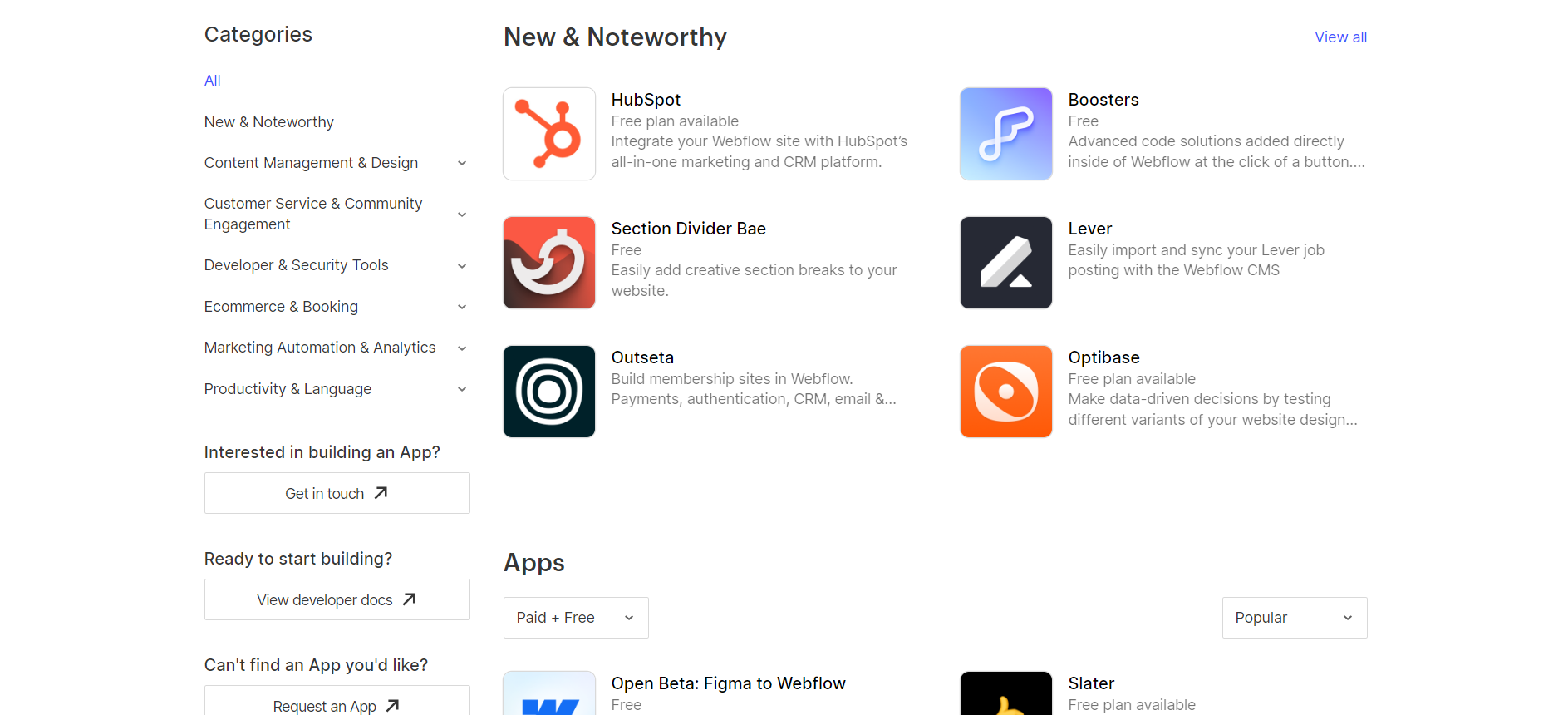
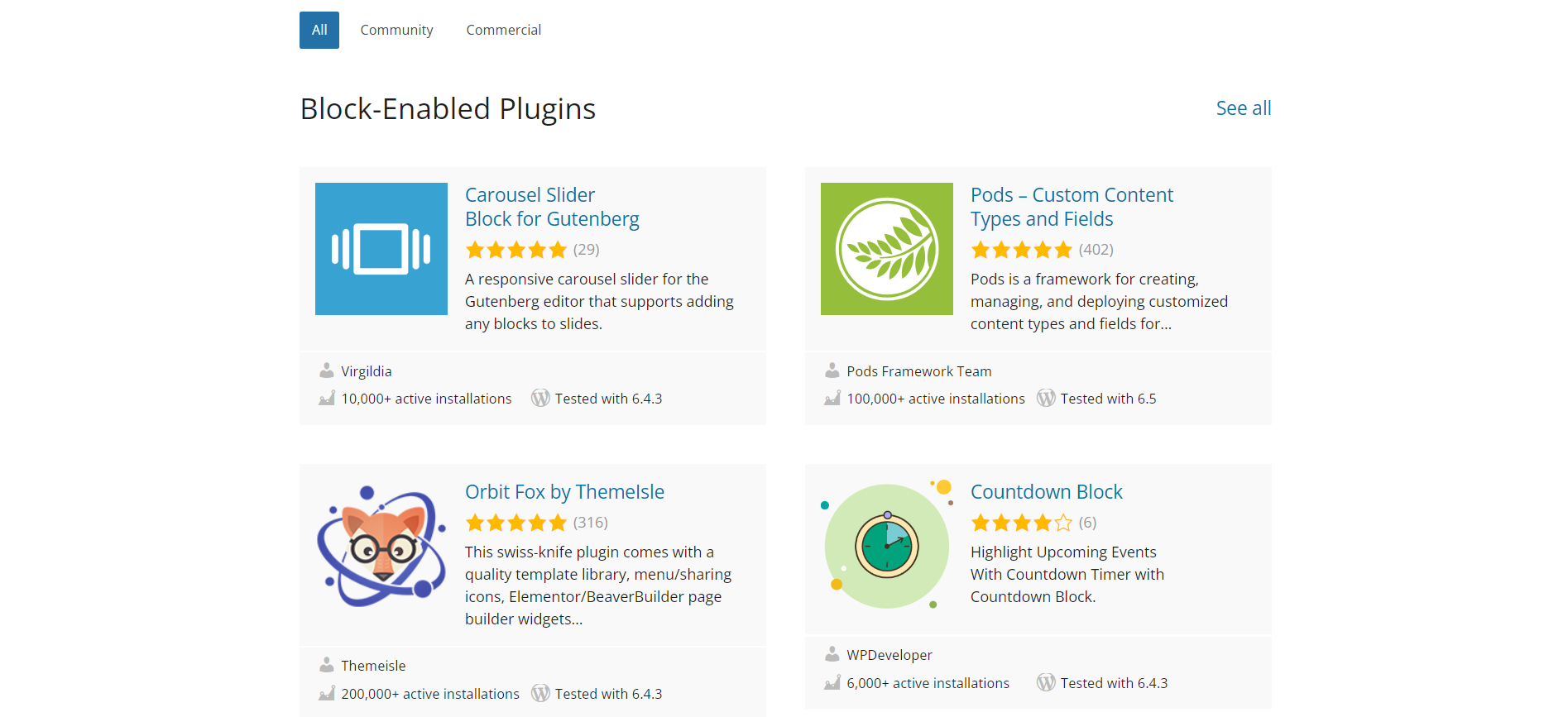
Marketing Features
Design FunctionalitiesRepresents how well each platform allows for creative design and customization of websites.Score Components:
- Template Variety (30%): Range and quality of design templates.
- Customization (30%): Flexibility and options for design alterations.
- User Interface (20%): Ease and intuitiveness of the design process.
- Responsiveness (10%): Adaptability to different devices and screen sizes.
- Innovation (10%): Unique design features and tools.
 7.8
7.8
 8.0
8.0
🏆
Overall Winner: Dreamhost
. Dreamhost edges out Webflow with a slightly higher score in marketing features. Both platforms offer a range of marketing tools, but Dreamhost’s comprehensive SEO Toolkit and seamless integration with third-party plugins for email marketing and ads give it a slight advantage.

|

|
|
|---|---|---|
|
SEO Tools |
|
|
|
Email Marketing |
|
|
|
Blogging |
|
|
|
Social Media Integration |
Simplifies content sharing and audience engagement on major social platforms |
Seamless integration through various plugins |
|
Analytics and Reporting |
Integrates with Google Analytics for comprehensive web traffic and behavior analysis |
Google Analytics integration for direct performance monitoring |
|
Ads and Promotions |
Supports ad and promotion management through integration with platforms like Google Optimize |
Supports integration of third-party plugins for ads and promotions |
Customer Support
Customer supportEvaluates the quality and availability of support options.Score Components:
- Response time (40%): Speed of support responses.
- Support quality (30%): Effectiveness and helpfulness of the support.
- Availability (20%): Range of support channels (phone, chat, email).
- Resource richness (10%): Quality of self-help and educational materials.
 8.3
8.3
 7.5
7.5
🏆 Winner: Webflow
. With a customer support score of 8.3, Webflow outperforms Dreamhost, which has a score of 7.5. Webflow offers 24/7 customer support through live chat, email, and a community forum. They also provide extensive documentation and video tutorials to help users navigate their platform and troubleshoot common problems. For enterprise customers, Webflow offers a dedicated Customer Success Manager for personalized onboarding, training, and optimization, as well as priority email and chat support from specialists.
Dreamhost also offers 24/7 live chat and email support, with a focus on quick and efficient assistance. They also offer phone support callbacks, although their availability may depend on the user’s specific plan. However, Dreamhost does not provide specialized support for enterprise customers.
Security
SecurityLooks at the platforms’ security measures and data protection.Score Components:
- Data protection (40%): Safeguards for user and customer data.
- SSL and encryption (30%): Implementation of secure connections.
- Compliance (20%): Adherence to industry security standards.
- Regular updates (10%): Frequency of security updates and patches.
 7.8
7.8
 8.2
8.2
🏆
Winner: Dreamhost
. Dreamhost takes the lead in security with a score of 8.2, compared to Webflow’s 7.8. Dreamhost’s commitment to data privacy and security is evident in their comprehensive security measures, including free Let’s Encrypt SSL certificates, domain privacy, multi-factor authentication, anti-spam filters, daily backups, and DDoS protection. They also offer advanced security features such as DreamShield for malware removal and mod_security and lua-resty-waf as web application firewalls.
Webflow, on the other hand, also ensures the privacy and security of user data by implementing robust encryption techniques and strict access controls. They also regularly update their systems and conduct audits to identify and address any potential vulnerabilities. However, Dreamhost’s more comprehensive security measures give it the edge in this comparison.
AI Capabilities
AI capabilitiesMeasures the effectiveness of AI-driven features and tools.Score Components:
- Automation efficiency (40%): Impact of AI on streamlining processes.
- Personalization (30%): AI-driven customization for users or customers.
- AI-Assisted design (20%): Role of AI in website design and functionality.
- Data analysis (10%): Use of AI in interpreting user data and analytics.
 8.3
8.3
 1.2
1.2

|

|
|
|---|---|---|
|
AI Builder |
|
Announced, not yet available |
|
AI Ecommerce features |
|
Not available |
|
AI content generation |
Announced, not yet available |
AI business name generator |
|
Additional AI features |
Announced, not yet available |
Not available |
🏆 Winner: Webflow
. Although Webflow’s AI capabilities are not yet available, they have announced plans to introduce AI features that will enhance the user experience. These include AI-customized templates, AI-powered content management capabilities, and smart suggestions for design elements and layouts.
Dreamhost, with a score of 1.2, only offers an AI business name generator. It does not have any other AI capabilities, making it less competitive in this category.
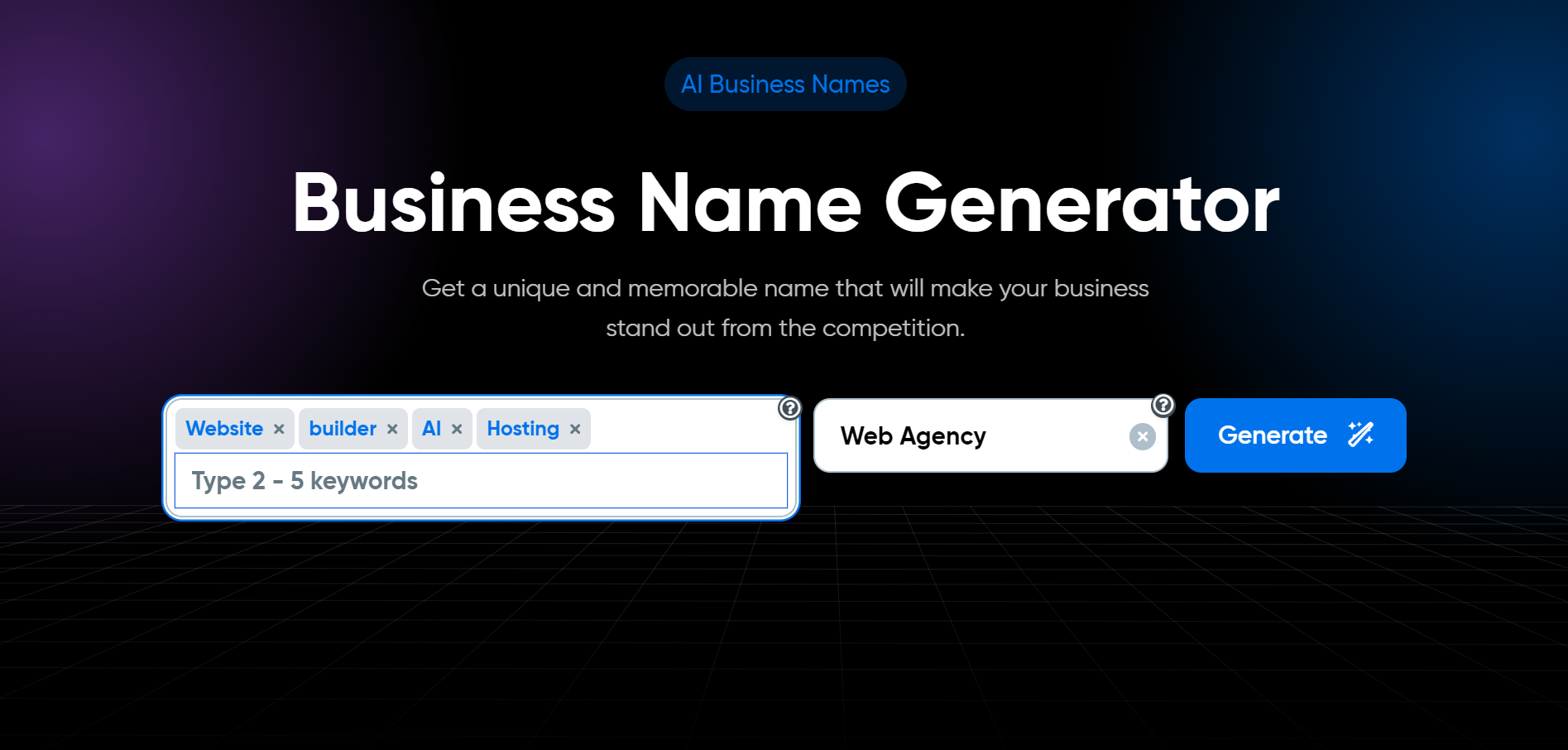
User Management
User ManagementAssesses the platforms’ capabilities in managing user roles, permissions, and accessibility.Score Components:
- Role Customization (40%): Flexibility in creating and defining user roles and
permissions. - Ease of Management (30%): User interface and tools for managing users.
- Access Control (20%): Effectiveness of access control measures for different user
levels. - Scalability (10%): Ability to manage a growing number of users efficiently.
 8.3
8.3
 8.8
8.8
🏆 Winner: Dreamhost
. Both Webflow and Dreamhost offer different approaches to user management, with Dreamhost offering more flexibility and control over user roles and permissions.
- Webflow’s user management varies by plan, with Core, Growth, and Enterprise plans offering unlimited editors, while others limit content editors to 3 or 10 per site. Access levels include Designer for full access and Editor for content editing. Workspace roles like Admin, Designer, and Editor ensure collaboration and security through features like the Site Activity Log and role-based permissions.
- DreamHost’s website builder primarily uses WordPress, which allows for multiple users to edit a website. While DreamHost doesn’t specify a limit on the number of users, WordPress enables the addition of numerous users with various roles such as Administrator, Editor, Author, Contributor, and Subscriber. Each role has its own set of permissions and capabilities, allowing for flexible and controlled access for different users.
Webflow User Roles and Access Levels:
| Role | Description | Access Highlights |
|---|---|---|
| Workspace Owner | Full control over Workspace settings and member management. | Edit settings, manage billing, access/edit all sites, invite/remove members, manage permissions. |
| Workspace Admin | Similar to the owner with some restrictions. | Edit settings, manage billing, access/edit all sites, invite/remove members (except owner), manage permissions. |
| Workspace Member | Limited control focused on site interaction. | Download invoices, access/edit sites, invite members. |
| Workspace Guest | Temporary collaborators with limited access. | Access/edit sites. |
| Workspace Commenter | Limited to commenting for feedback on sites. | Create/view/resolve comments, preview sites. |
| Site Admin | Full control at the site level. | Manage permissions, delete/transfer sites, billing management, design and publish changes. |
| Can Design | Design capabilities with some restrictions on publishing. | Design in Designer, create/modify classes and components, publish changes with permission. |
| Can Design (Limited) | Restricted design capabilities for Enterprise customers. | Create new classes, modify created classes, limited publishing capabilities. |
| Can Edit | Content editing without full design privileges. | Edit text/links/images, manage assets, publish Collection items and Ecommerce products. |
| Can Comment (Site Level) | Commenting for feedback at the site level. | Create/view/resolve comments, preview sites. |
Dreamhost User Roles and Access Levels:
| Role | Description | Access Highlights |
|---|---|---|
| Administrator | Users with full access to all administration features, including Elementor settings. | Can edit all content, Access to Elementor settings, Can install plugins and themes, Can manage users |
| Editor | Users who can manage and publish content including pages and posts. | Can edit pages/posts created with Elementor, Cannot access Elementor settings, Can manage categories, tags, and links, Can moderate comments |
| Author | Users who can publish and manage their own posts. | Can create posts with Elementor, Cannot edit pages, Limited access to media library, Cannot access Elementor settings |
| Contributor | Users who can write and manage their own posts but cannot publish them. | Can create content with Elementor, Cannot publish or edit pages, No access to Elementor settings, Submissions require review by higher-level roles |
Additional Features

|

|
|
|---|---|---|
|
SSL Certificate |
|
|
|
Custom Domain |
|
|
|
Free Custom Domain Included |
|
|
|
International Domains |
|
|
|
Mobile Responsive |
|
|
|
Page Speed |
|
|
|
Website Builder Mobile App |
|
|
|
Convert a Website To An App |
|
|
|
Website Analytics |
|
|
|
Multilingual Sites |
|
|
|
Multiple Users |
|
|
User Feedback
Webflow receives high praise for its user-friendly interface, eliminating the need for coding while offering extensive design flexibility. Users appreciate its scalability, cost-effectiveness, and seamless integration of essential features like forms and CMS. However, some users note a slight learning curve and occasional limitations, particularly in ecommerce functionalities and content management. Overall, Webflow proves to be a powerful tool for building and managing websites, offering robust features for both beginners and experienced developers, albeit with some room for improvement in certain areas like collaborative editing and content management.
Users appreciate DreamHost WP Website Builder for its ease of use, broad template selection, and integrated hosting solutions, highlighting its utility in building and managing websites efficiently. However, some users suggest improvements in areas such as image editing capabilities, customer support, and software optimization to enhance speed and functionality. While many find it a cost-effective and user-friendly option for website development without coding, others express concerns over occasional software bugs, slow website performance, and the desire for more advanced features.
The making of this blog
We followed a clear, step-by-step process to write and research this article.
FAQ
Which platform is better for professional designers, Webflow or Dreamhost?
Can I use both Webflow and Dreamhost for ecommerce?
How do Webflow and Dreamhost compare in terms of ease of use?
Which platform offers better hosting quality, Webflow or Dreamhost?
In terms of website speed optimization, which platform is better?
Which platform has better customer support, Webflow or Dreamhost?
For users concerned about security, which platform is recommended?










